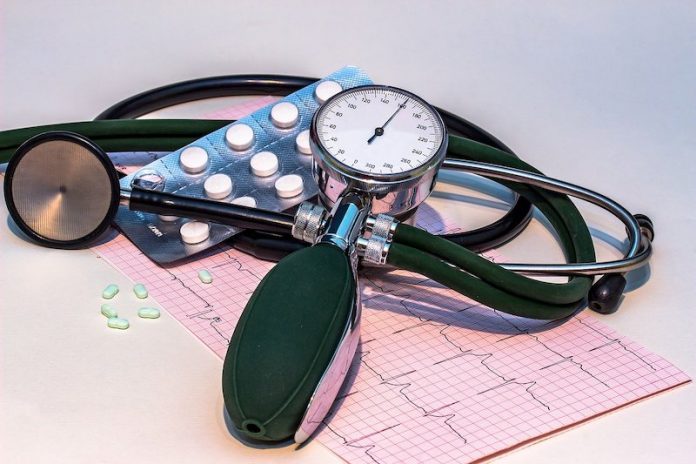
In a new study from the University of Alabama at Birmingham, researchers found that intensive blood pressure treatment targeting systolic blood pressure <120 mm Hg can lower rates of heart disease and all-cause mortality.
In the study, the team assigned 9,361 participants at increased risk for heart disease without diabetes or previous stroke to adhere to an intensive treatment target (systolic blood pressure <120 mm Hg) or standard treatment target (<140 mm Hg).
The researchers found that the rates of heart attacks, other heart syndromes, strokes, heart failure, death from heart disease, and all-cause mortality were much lower in the intensive treatment group versus the standard treatment group.
But in the intensive-treatment group, serious adverse events of low blood pressure, kidney injury or failure, and fainting occurred more frequently.
Similar patterns were seen for treatment benefit and adverse events when trial and post-trial follow-up data were combined.
The team says after the study, the achieved blood-pressure differential between the treatment groups was attenuated gradually, and more frequent heart failure was noted in the intensive-treatment group.
If you care about high blood pressure, please read studies about this type of food linked to lower risks of high blood pressure, diabetes and findings of common high blood pressure drugs can actually raise blood pressure in some people.
For more information about blood pressure control, please see recent studies about this diet could help reduce high blood pressure in older people and results showing that blood pressure management in this way can be effective and low-cost.
The study is published in the New England Journal of Medicine. One author of the study is Cora E. Lewis, M.D., M.S.P.H.
Copyright © 2021 Knowridge Science Report. All rights reserved.



